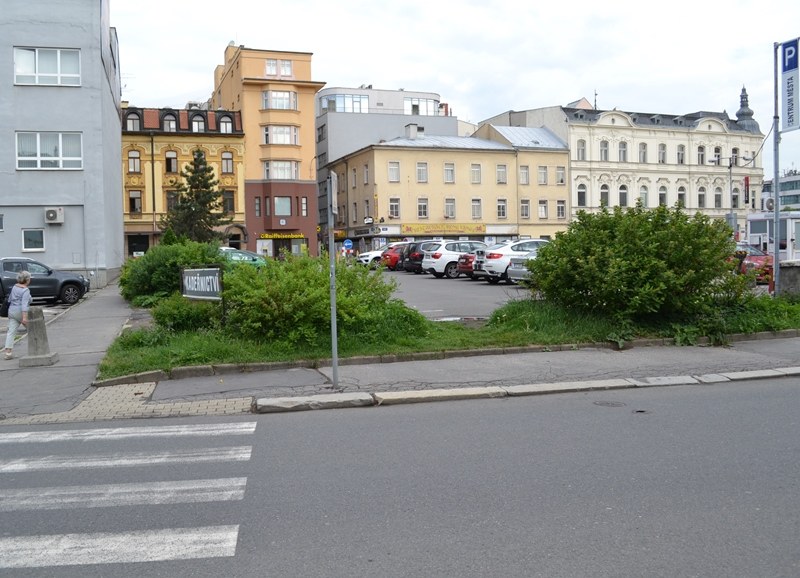
City is selling prime land in central Ostrava
The City of Ostrava is seeking a buyer for a plot of land with a total area of 1400 m² in the historic heart of the city. The City Assembly approved the sale of the land at its session on 23 May. The site – opposite the Puppet Theatre – is currently used for car parking.

The land is located next to the site of the planned “Nové Lauby” multifunctional development. The City envisages the land being developed into a complex of offices or similar facilities.
Ostrava’s Mayor Tomáš Macura explained: “We are keen to inject new life into the city centre and develop the existing vacant lots. We have identified several potential development sites – some were already owned by the City, and we have purchased others from private owners. In the case of the planned building on the corner of Biskupská and Kostelní Streets the investor will be the central municipal district (Moravská Ostrava a Přívoz), but the land next to the Nové Lauby site will be offered to a private investor. The Nové Lauby multifunctional development will be directly adjacent to the land, so it will be up to the investor and the architect how they deal with that situation. The site is ideal for offices or facilities such as doctor’s surgeries – but perhaps the investor will come up with a different plan.”
The total price of the land is 14 million CZK (i.e. 10 000 CZK per square metre). Because the land is located in the historic city centre, within an urban heritage zone, the City strictly regulates the height and size of new buildings. Mayor Macura gave more details: “We will also assess the planned function of the new development, parking facilities, and the investor’s financial situation.” In addition to the price of the land, the investor will also have to pay for an archeological survey at the site.
The investor will not become the owner of the land immediately. Initially, the investor will be granted the necessary permits to build on City-owned land, and once construction work has reached a particular phase, the ownership of the land will be transferred to the investor. The City has chosen this approach in order to prevent a situation in which construction work is suspended or the investor decides to use the land for car parking instead of construction (which has already happened in the past). The contract between the investor and the City will impose a number of conditions which the investor will have to fulfil; if the investor fails to do so, ownership of the land will automatically revert to the City. The contract will also require the investor to pay part of the costs of an archeological survey at the site.
Potential investors have until the end of July to submit their offers.
